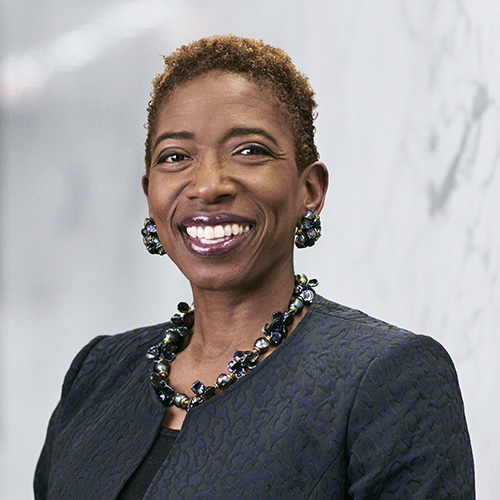THOUGHT LEADERSHIP
Earning leadership currency in your organization is essential to progressing along your career path — but it’s not easy to do. The cream always rises to the top, but how does it happen? Not by chance, according to Carla Harris, Managing Director at Morgan Stanley. And it’s not just about putting your head down and working hard either. To succeed in your career and in any organization requires building support networks and having a strategy for creating a strong presence.
Harris recently appeared on Cloud Council, where she shared her “Pearls” of wisdom with our audience, which are outlined in her book Expect to Win. During the podcast, we had the opportunity to hear her insights about taking risks, building key relationships, and the power of perception in the workplace. Harris also spoke to the importance of expecting to win and authenticity, key topics she covers in her latest book, Strategize To Win. Her lessons in leadership are especially relevant today, as leaders across industries grapple with the challenges of the pandemic and its impacts on businesses.

“Your role as a leader is to motivate and inspire people to deliver beyond what they think is possible"
On The Art Of Risk-Taking
Success on Wall Street requires grit and hard work, but Harris says the “producer” culture doesn’t prepare you for the challenges of leadership. “Your role as a leader is to motivate and inspire people to deliver beyond what they think is possible,” she said. "That’s what’s required of leaders, particularly in today’s challenging economic environment.”
Harris discovered this essential truth early, as she moved rapidly up the ladder, beginning in mergers and acquisitions. “I was drawn to this market segment because I knew it would be a challenge,” she said. “When someone says I can’t do something, I set out to prove them wrong!” She later moved into long-term investing and capital funds, then sought out a new challenge in asset management, helping to raise funds to support women- and minority-owned asset managers — a risky move at that time.


"Perception Is Reality's Co-Pilot"
Managing perception is another “pearl” in Harris’s treasure chest of wisdom. Perceptions influence reality, and people form them quickly. “When you begin a new role, you have 90 days to establish who you are as a leader,” she said.
Harris recommends choosing three adjectives that describe you as a superstar in the new role, then letting those adjectives govern your behavior day in and day out for at least the first three months. “People will begin to think of you however you have trained them to think of you,” she said. “Two fiscal quarters of consistent behavior around your chosen adjectives will create the perception you want people to have, and they’ll start describing you in that way.”

Authenticity Strengthens Relationships
Whether you’re working alongside her, watching her speak on stage or listening to her on a podcast, Harris’s authenticity shines through. Being authentic, she said, has contributed to her ability to form lasting, meaningful relationships. “When you bring your authentic self to the table, people trust you, and trust is at the heart of every successful relationship.”

EDITORS PICKS

Cloud Counsel
Leadership: Currency, Change and Creating a Powerful Presence






